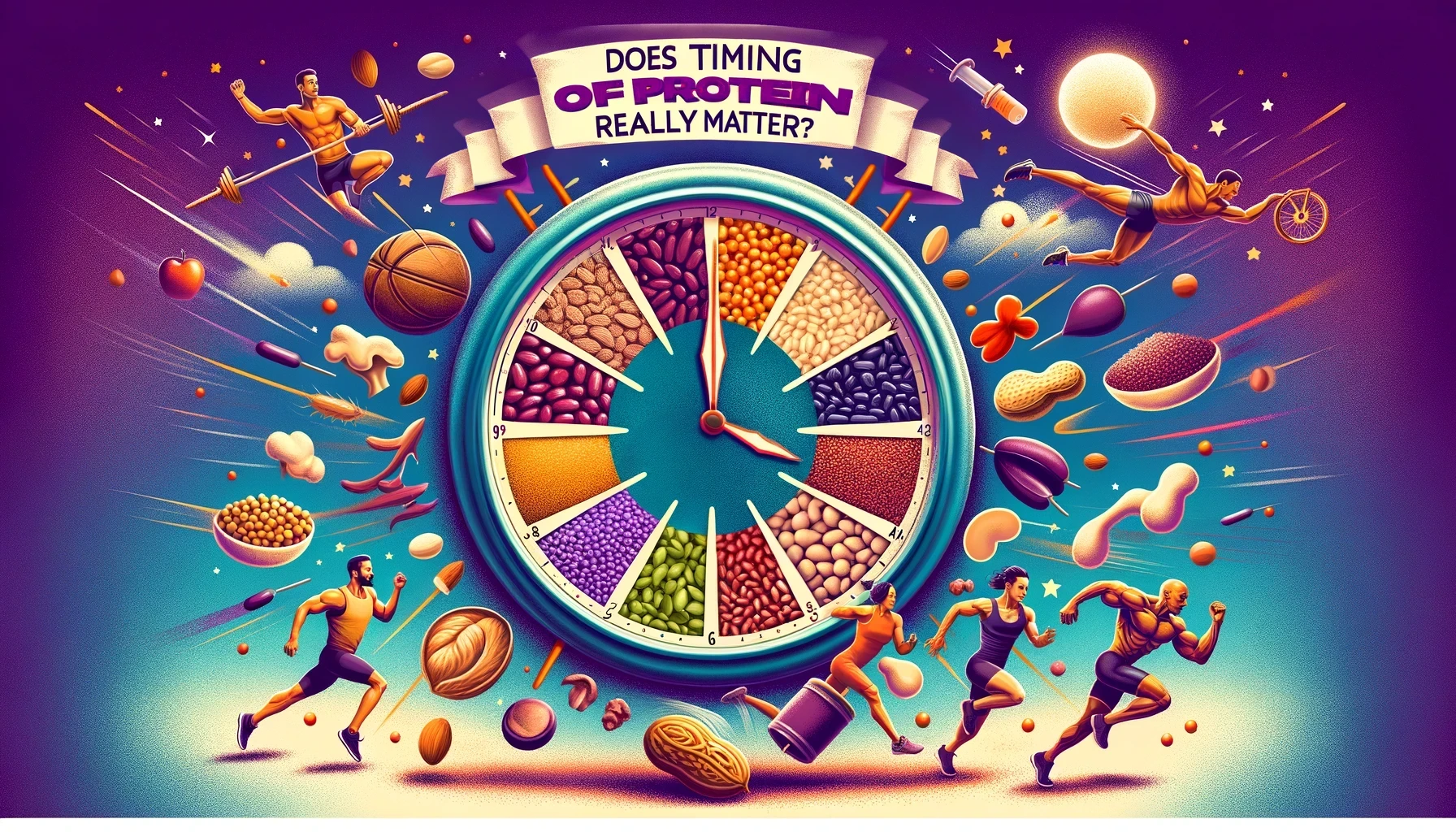For athletes and fitness enthusiasts, the timing of protein intake is often discussed as a crucial element of an effective nutrition strategy. But how much does timing really matter? This article dives into the science of protein timing and its implications for muscle growth, recovery, and overall athletic performance.
The Science of Protein Timing
Protein timing refers to the strategic protein intake around workout sessions — before, during, and after exercise. The goal is to optimize the body’s anabolic response, essentially making the most of muscle synthesis and recovery.
- Pre-Workout Protein
- Benefits: Consuming protein before exercise can help to ‘prime’ the muscles, providing a source of amino acids during your workout to prevent muscle breakdown.
- Ideal Timing: 30 minutes to 2 hours before exercising, depending on the size and composition of the meal.
- Post-Workout Protein
- Benefits: After exercise, your muscles are particularly receptive to nutrients. Protein intake post-workout can boost muscle synthesis and aid in recovery.
- Anabolic Window: Traditionally, it was believed that there’s a narrow window of opportunity (about 30-60 minutes after training) to optimize muscle recovery. However, recent research suggests that this window may be wider, extending up to several hours post-exercise.
- Throughout the Day
- Benefits: Beyond pre- and post-workout, distributing protein intake evenly throughout the day can also contribute to better muscle protein synthesis and overall nitrogen balance in the body.
- Recommendation: Aim to consume a source of protein in each meal and snack, roughly every 3-4 hours.
Case for Anytime Protein
While the focus on pre- and post-workout protein is valid, it’s important to remember that total daily protein intake and overall diet quality are the most significant factors for muscle growth and recovery. For most people, particularly those not involved in high-intensity training or elite athletics, ensuring adequate protein throughout the day is typically sufficient for meeting their needs.
Special Considerations for Athletes
For competitive athletes or those engaged in heavy training sessions, fine-tuning the timing of protein intake can offer marginal gains that might be crucial for performance outcomes. In these cases, working with a sports nutritionist to develop a tailored eating plan can be beneficial.
Practical Tips
- Pre-Workout: A protein smoothie can be a light yet effective pre-exercise boost.
- Post-Workout: Try a protein shake or a meal containing protein within a couple of hours after training to aid in recovery.
- All Day: Incorporate protein-rich foods like legumes, nuts, seeds, and whole grains in meals and snacks throughout the day.
Conclusion
The timing of protein intake does have its benefits, particularly around workouts, but it’s important not to lose sight of the bigger picture — overall protein consumption throughout the day. For most individuals, focusing on a consistent and balanced diet should be the priority, while specific timing adjustments can be an additional tweak for those looking to optimize athletic performance and recovery.
